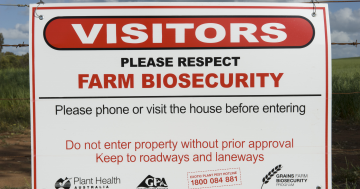 A performance audit of the Department of Primary Industries’ (DPI) management of biosecurity risks for the State has found the Department to be lacking across a range of requirements.
A performance audit of the Department of Primary Industries’ (DPI) management of biosecurity risks for the State has found the Department to be lacking across a range of requirements.
In her report Biosecurity Risk Management, Auditor-General Margaret Crawford found the DPI did not have a comprehensive picture of biosecurity compliance activities, suffered gaps in its emergency response practice and was unable to prioritise and allocate resources to address emerging areas of risk.
“DPI has not built formal partnerships with State Agencies to share data and information on biosecurity,” Ms Crawford said.
“As a result it does not have a comprehensive picture of biosecurity compliance activities”.
She said the DPI could not demonstrate that its biosecurity compliance and emergency response activities were economical because it did not collect response-specific financial data.
Ms Crawford said that while the DPI conducted regular biosecurity compliance activities and reviewed its program annually, these reviews were based on limited data and consultation with stakeholders.
“It has an incomplete picture of key or emerging biosecurity risk areas. This means that DPI may not be focusing its compliance activities on areas of highest risk,” she said.
She said that in addition, the DPI did not consistently analyse data and lessons learnt to improve biosecurity emergency response practices.
“DPI’s biosecurity activities focus on risks to the economy but do not directly address emerging risks to the environment and community amenity,” Ms Crawford said.
The Auditor-General’s 38-page report can be accessed at this PS News link.










